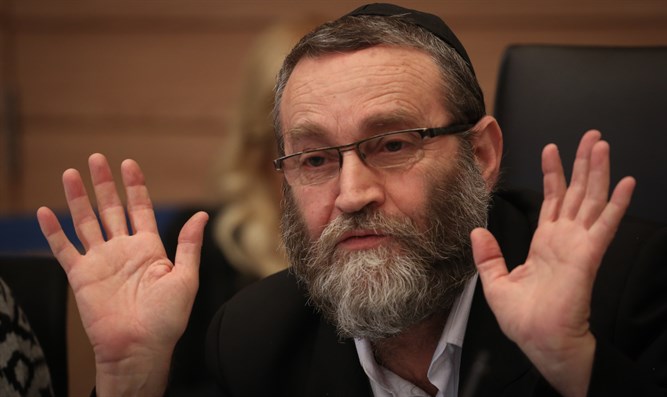A norm that “goes against freedom of conscience” even before freedom of religion and is “contrary to Article 18” of the United Nations Universal Declaration of Human Rights.
Msgr William Shomali, vicar general of the Latin Patriarchate of Jerusalem, does not hide his concerns about the bill proposed by two Israeli MPs close to the radical right that criminalises Christian evangelisation.
The prelate stresses that the text “goes against freedom of conscience” one way, because in the past “there have been many cases of Christians, especially those from countries of the former Soviet Union, who have become Jews” out of conviction or convenience, and no one has thought of proposing a legislative text to prevent this.
Last week, Moshe Gafni and Yaakov Asher – two members of the Knesset, the Israeli Parliament – presented a bill that expressly forbids evangelisation, declaring illegal any effort to bear witness to the life of Jesus and His teachings. For transgressors, if approved, penalties of up to one year in prison are foreseen.
The text speaks of “missionary groups, mainly Christians”, who are the first to be affected by the device; it precludes the possibility of even “speaking peacefully” trying to “persuade or convert” a person “of a different faith” through “face-to-face conversations”, but also through “mail or online videos”.
In the Israeli code there was already a kind of “anti-missionary” law that “chastised a Christian found guilty of proselytism”, Mgr Shomali points out. “It – he continues – was aimed at those who tried to baptise a Jew, especially if the latter had economic or work interests within the institution where the conversion took place. The example is that of a Jewish employee of a Catholic hospital, who is converted’.
He adds, “now the law would be consolidated, strengthened and would punish any activity even if there are no ties, in addition to doubling the penalty and applying not only to Christians”.
Among the voices most critical of the bill are US evangelical Christians, among the strongest and most influential groups supporting Israel in the United States. This is also why Prime Minister Benjamin Netanyahu yesterday afternoon hastened to publish a statement on Twitter in which he assured that the law will not be approved, even though it comes from a leading ally of the government. The risk of antagonising a further slice of his own consensus overseas, at a time when relations with the White House and President Joe Biden are not at their best, is too high.
According to All Israel News, the first objective is to ‘make it illegal’ for followers of Jesus to explain why he is considered both ‘the Messiah and God’ with the ‘hope’ that ‘Israelis might consider following him’. Proponents of the rule are two Knesset members, Moshe Gafni and Yaakov Asher, close to the ultra-Orthodox Jewish wing and members of United Torah Judaism.
The text, entitled ‘Prohibition of solicitation for religious conversion’, would amend Israeli criminal law from 1977 by providing for up to “one year in jail” in the case of an attempt at “conversion”, a penalty that rises to two years “if the person is a minor”.
The law effectively prevents any form of evangelisation in the Holy Land starting “from a simple conversation about Jesus” to – widening the field – the production and publication of videos, articles or other forms of media explaining the Gospel. Moshe Gafni is chairman of the Knesset Finance Commission, a member of the Foreign Affairs and Defence Commission and of the Joint Defence Budget Commission, while Asher heads the Interior and Environment Commission.
“What is worrying,” Msgr Shomali resumes, “is the general climate” in the Holy Land in recent weeks. “The violence, the deaths, already 14 on the Israeli side and over 85 among the Palestinians, a number that is increasing. Violence produces violence, a vicious circle, which causes reprisals on both sides.”
He warns, “we hope we will not see a further escalation during Ramadan’, the holy month of fasting and prayer. We are heading towards difficult times, but we pray and hope.” The first step is “a just solution” for the Israeli-Palestinian issue and for Jerusalem, then the hope “is that the pilgrims continue to come, because they are an essential element for our life. Losing this flow,’ he concludes, ‘would be negative for everyone, not only for Christians.”



